When it comes to taking care of our plants, we want to use the best possible methods to ensure their health and vitality. Essential oils are extracted from plants, so it is natural to assume they are safe to use on plants. They are free from harmful chemicals and can be an effective was to get rid of unwanted pests. In this blog post, we will explore the different ways of using essential oils on plants, and provide some tips for how to do so safely.
Are Essential Oils Safe For Plants?
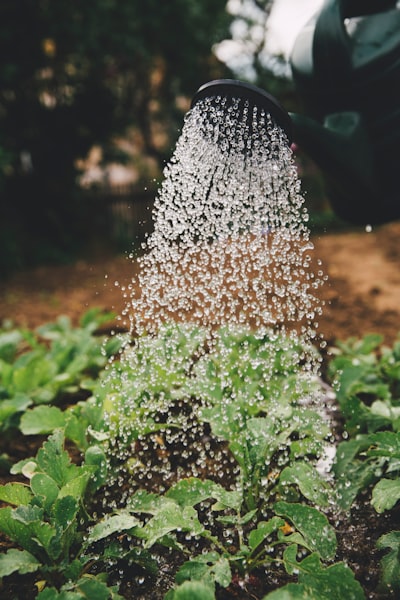
When used correctly, essential oils can be a safe and natural way to care for your plants. They are a popular choice among gardeners and can be used as a natural form of pest control, as a fungicide, or as a beneficial supplement. However, it is important to remember that essential oils are very concentrated forms of plant extracts. This means that they can potentially be harmful if used incorrectly. Additionally, some essential oils can be toxic to certain plants but the good news is these oils can make effective weed killers.
When using essential oils on plants, always start with a small amount and increase as needed. It is also important to be aware of the possible side effects of using essential oils on plants. These can include leaf burn, wilting, or even lead to the death of the plant in extreme cases.
Using Essential Oils on Plants
When it comes to using essential oils on plants, there are pros and cons to consider.
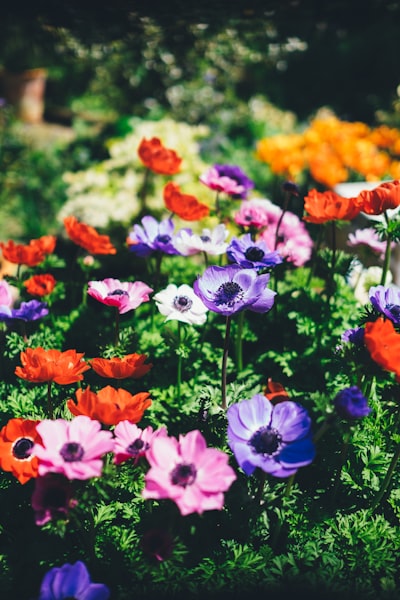
On the one hand, essential oils can be beneficial for plants. They’re a natural, chemical free choice of pest control making them a great addition for veggie patches to avoid harmful chemicals. They can help to repel garden pests, and can also act as a natural fungicide or insecticide. In addition, essential oils can help to improve the overall health of plants by providing them with essential nutrients.
On the other hand, essential oils can also be harmful to plants if they are used incorrectly. Over-watering plants with essential oils can cause them to become dehydrated, and using large amounts oil can burn the leaves of plants or rot the roots. In addition, some essential oils are harmful to certain types of plants so it is important to do your research before using essential oils on your plants, and to always test a small area first to make sure they will not be harmed.
If you do decide to use essential oils on your plants, there are a few things to keep in mind. First, only use a small amount of oil, and make sure that it is diluted properly. Second, apply the oil to the leaves of the plant rather than the roots, and be sure to avoid getting any on the flowers or buds. Finally, always test a small area of the plant first to make sure that it will not be harmed by the oil.
What Are The Best Essential Oils To Use On Plants For Pest Control?
There are a number of essential oils that can be used for pest control on plants. Some of our favorite essential oils for this purpose include basil, clove, lavender, peppermint, and thyme. Each of these oils has a unique blend of properties that make it effective against different types of harmful insects.
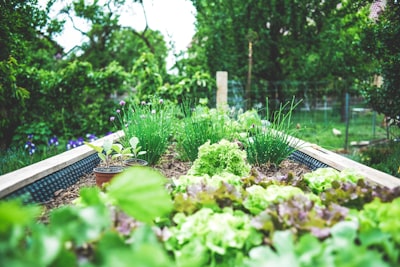
- Basil oil is a natural insect repellent that can help to repel aphids, mites, and whiteflies.
- Clove oil is effective against a variety of insects, including ants, beetles, and cockroaches.
- Lavender essential oil has a strong scent that can help to repel pests.
- Peppermint oil is effective against ants, aphids, fleas, and spiders.
- Thyme oil can help to repel ants, beetles, and moths.
- Citrus oils are another good option for an insecticide as they are safe for humans and animals, but they are also toxic to plants.
For a more thorough look at essential oils for pest control check out our post for 15 essential oils that repel mosquitos.
What Are Some Good Essential Oils to Use on Plants as Fungicides?
There are a number of essential oils that can be used as fungicides on plants. Some of the most popular oils for this purpose include basil, clove, lavender, peppermint, and thyme. Different essential oils can be effective against different types of fungus, so it’s important to use a blend of oils that will work against the specific type of fungus you’re targeting. The following essential oils have been shown to be effective against various types of fungi:
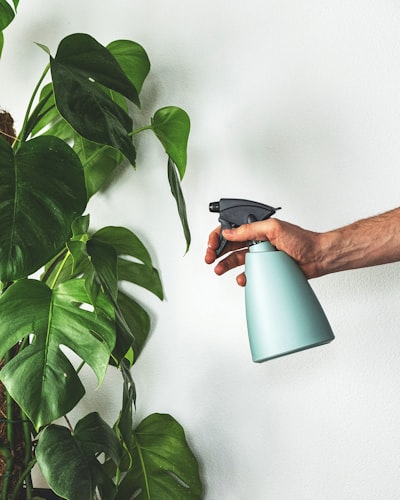
- Basil oil is a natural fungicide that can help to control black spot, mildew, and rust. Kills aspergillus, fusarium, and rhizopus.
- Clove oil is effective against a variety of fungi, including powdery mildew and brown rot. Kills alternaria, aspergillus, colletotrichum, curvularia, and fusarium.
- Lavender oil can help to control black spot, fungus growth, powdery mildew, and rust as it has anti-fungal and antibacterial properties. Kills botrytis cinerea and Cladosporium herbarum.
- Peppermint oil is effective against black spot, mildew, fungal growth, and rust. Kills candida albicans and cryptococcus neoformans.
- Thyme oil can help to control black spot, powdery mildew, and rust. Kills Aspergillus, Candida, Cladosporium, and Fusarium.
When using essential oils as a fungicide, it’s important to remember to dilute them properly and only use a small amount. Fungal infections and mould can be caused by overwatering so it’s best to use little water and spritz the plant sparingly. In addition, be sure to apply the oil directly to the affected area rather than spraying it on the entire plant. As always, it’s important to test a small area first to make sure the oil won’t harm the plant.
What Essential Oils Are Good To Improve Plant Health?
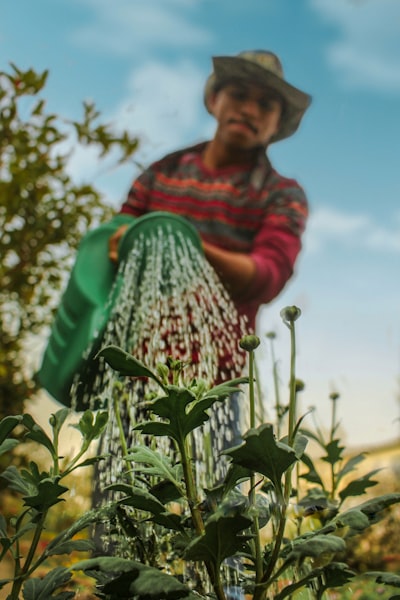
There are many essential oils that can improve plant health. Some of the most common oils include peppermint, lavender, and tea tree oil. These oils can help to improve plant growth, protect plants from pests and diseases, and improve the overall health of your plants by providing them with essential nutrients they may be lacking.
- Lavender oil is good for plant health because it is a source of nutrients that can help improve the health of plants. It is known for its ability to promote growth and stimulate cell division, both of which can lead to increased mineral uptake by plants.
- Tea tree oil is also an effective growth promoter, but it also has antifungal and antibacterial properties that can help to prevent diseases that could otherwise stunt plant growth or impede mineral uptake.
- Peppermint oil is good for plant health because it can help to improve plant growth, and can also help to protect plants from pests and diseases.
- Basil oil is known to be high in magnesium, which is an important plant nutrient.
- Clove oil is also high in minerals, including potassium and calcium.
Can you use essential oils as a weed killer?
While essential oils are made from natural plant extracts, they can be toxic if used in too high concentrations. It is important to remember that essential oils are a very concentrated form of the plant and they can be harmful to plants in the same way as they can cause adverse effects and skin irritation when used undiluted on the skin. The good news is essential oils are a more natural alternative to traditional herbicides and so more suited to food crops. Studies have found that essential oils can be an effective weed killer against invasive weeds and are capable of stunting the growth of plants and seedlings.
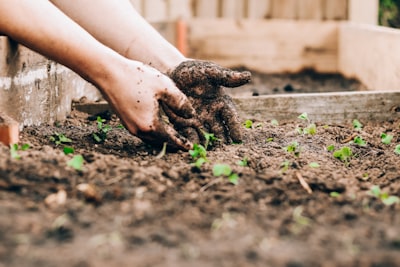
The following oils can make effective weed killers when used in higher concentrations by causing root rot, stunted growth, or leaf burn.
- Eucalyptus oil
- Lemongrass oil
- Peppermint oil
- Cinnamon oil
- Clove oil
- Eucalyptus oil
- Oregano oil
Each of these oils has a unique blend of properties that make it toxic to plants. Some oils are capable of breaking down the cell walls of plants, while others can cause irritation and burns.
Keep in mind essential oils are usually indiscriminate in what they kill, so take care to avoid and protect plants you don’t want to get rid of! Don’t spray when it is windy to avoid the oil mixture accidentally being carried on the breeze and try not to spray just before rain or the oils will not be as effective after being washed off.
How to Use Essential Oils on Plants
Unless using as a weed killer, it is important to use only a small amount of essential oils on plants and to make sure that they are diluted properly. A general rule of thumb is to mix 2-3 drops of oil per litre of water. You can also add the oil to a glass spray bottle and apply it directly to the leaves of the plant.
If you are using essential oils as a pest control, you should only apply the oil to the leaves of the plant rather than the roots.
If you intend to use the oils in a vegetable garden, make sure you don’t use any oils that could cause allergic reaction to anybody who may eat the veggies. Also bear in mind that some oils like peppermint can be toxic to animals so be sure to double check if an oil is safe for your furry friends before using in your garden.
It is also important to avoid getting any essential oils on the flowers or buds of plants. This can cause them to become damaged and may prevent them from blooming.
For outdoor plants you should check the weather conditions first and avoid application just before rain which will wash off the oils and reduce their effectiveness. For best results avoid application in direct sunlight as this can burn the plants and cause sensitivity. It is always best to water in the early morning or in the evening anyway to avoid any risk of the plants getting sunburn.
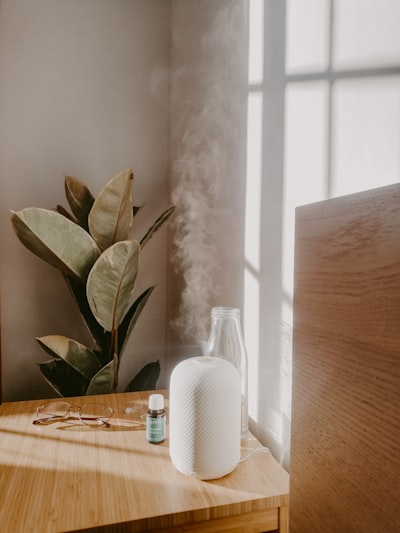
If using essential oils as a weed killer, then a concentration of around 20 drops of oil per litre of water should be effective. Remember that high concentration oils will kill all plants, not just weeds, so take care to avoid spraying any area where you don’t want to harm the existing vegetation.
Diffusing essential oils into the air around indoor plants can be beneficial and is the best option for treating houseplants. This is a good way to protect them from pests and diseases and can also humidify the air around the plants. Adding a couple of drops of oil to your diffuser is the best way to treat house plants with fungal infections or insect infestations.
You can also add a few drops of essential oil to a cotton ball and place it in the pot with your plant. This will help to keep pests away and will also provide a source of nutrients for the plant.
Finally, always test a small area of the plant before applying essential oils to the entire plant. This will help to ensure that the plant will not be harmed by the oil.
The most important thing to remember when using essential oils on plants is to use them in moderation. A little bit of oil can go a long way, and too much can be harmful to both the plant and the person using it.
Conclusion
In conclusion, are essential oils safe for plants? It depends! Essential oils can be beneficial or harmful to plants depending on how they are used. Always do your research before using essential oils on your plants, and test a small area first to make sure they will not be harmed.

